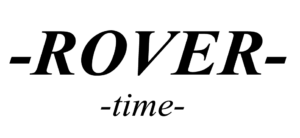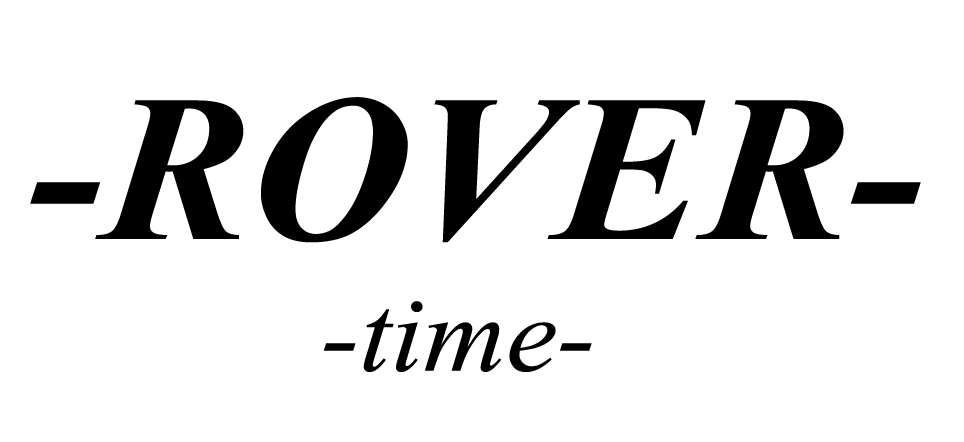Future Of Work Podcast
Content
- The Future Of Work
- Software And Apps To Support Remote Work
- Darcy Boles, Director Of Culture & Innovation At Taxjar, A Stripe Company
- Distributed, With Matt Mullenweg
- Jeff Chow, Chief Product Officer Of Invision
- Leadership Coach Leo Widrich On Emotional Wellness For Distributed Workers
- Hiring Resources
But he and our leadership team continue to do what worked best for GitLab, and today we’re more than 1,300 team members across 65 countries around the globe. So it’s scaled https://remotemode.net/ in a remarkable way and that’s really due to the foundation that they set back in those early days. The remote worker’s life is filled with challenges and opportunities.
But again, another caveat is that a lot of people are saying, great, I need somebody dedicated to this permanently. Ideally, you want your entire executive team to become heads of remote. You want everybody to just be thinking remote-first all the time. So essentially what people need in a head of remote is just somebody to guide them through this change management process, to be helping them design a policy.
The Future Of Work
Either way the links, articles and information below are here to help support you in your remote working jouney. She writes and speaks regularly on emotional intelligence and empathetic remote leadership.

For example, people have VPN configurations that aren’t working. Many don’t use these very frequently so as soon as they moved to a remote environment, they started to realize all these underlying problems are bubbling up. So we started planning in the middle of the day on March 10 for our first test WFH day to be on March 12. But on the 11th we knew we were going to be working from home for the foreseeable future.
Software And Apps To Support Remote Work
So to take a step back GitLab, the product, is the DevOps platform, it’s an amazing collaboration tool that allows teams to deliver software and work together faster and more efficiently in a single platform. And then GitLab, the company, has been remote since inception, like you mentioned. So that’s where the kind of misunderstanding comes about is that, it wasn’t possible for us to take that intentional time when your organization’s being told to make these changes overnight and get everyone home all of a sudden. So I think that’s what we’re gonna see in these next months and years is people really having the ability to take that intentionality and put that in the equation and hopefully really give it a chance. So I think in many ways because of this really sudden, widespread adoption remote work has been a really big silver lining of what’s been a difficult couple of years otherwise. Just how successful remote work has been throughout the pandemic.
Based on a new theme every week, the meditation teacher Mary Meckley assists you in managing your emotions and stress triggers. Some examples of the themes are Healing Anger, Humanity Towards Others, Develop Your Intuition, and more. Some of these podcasts talk about practising patience, daily affirmations, breathing techniques, etc. which helps you relax and de-stress when working remotely.
Guests come from a variety of backgrounds but are chosen for being outstanding digital nomads. Employers tend to think that remote workers spend their days binging Netflix’s latest murder series.
Darcy Boles, Director Of Culture & Innovation At Taxjar, A Stripe Company
So that’s why I’ve been disappointed about what I’ve seen so far is like, hey, folks, we’ve got to remember, virtual culture is not just having virtual coffee break together. It’s about facilitating really meaningful, impactful objectives together to help us fulfill business and interpersonal objectives. Well, before we jump into some details here, can you share some definitions I think that help kind of get us all thinking about this topic the same. And so a couple of the ones to start with are maybe the difference between remote work versus hybrid or what it means to be remote-friendly and maybe how people should think about a handful of those things. The entire executive leadership team should be thinking remote-first all the time. Transitioning to hybrid or fully remote work requires a change management plan and strategy to be successful. So again, it all comes down to making the right organizational changes and applying those remote first principles to remove the office as a crutch.
Another remote work podcast that looks to the future is this one. Hosted by Jacob Morgan, The Future of Work looks at changing trends in how people earn a living. Top CEOs and executives offer their advice on future-proofing your life and career. Chase lives a nomadic existence and uses his experiences to offer tips for anyone looking to adopt this lifestyle. His guests include business leaders and people who have swapped the office for the chance to work from their dream location.
Distributed, With Matt Mullenweg
After discovering her passion for photojournalism, she began a digital nomad life that she’s keen to share. Hosted by Nomad Charles, this is a highly practical podcast that focuses on the transition. You’ll learn how to build a passive income and build the skills needed to go fully remote. From YouTubers to fitness remote work podcasts coaches, Going Remote offers a broad range of perspectives regarding the digital nomad lifestyle. Topics discussed include why leaders should think like futurists, changing approaches to leadership, and the power of flexible, hybrid work. There are also episodes on forming better habits and avoiding self-sabotage.
- They can be an incredible source of insight and inspiration, offering long-form and in-depth discussions on every topic under the sun.
- Sign up to our monthly dose of recommended reading and listening, as well as digests of our blog posts and podcasts.
- In this podcast, host Erik Fisher talks with experts from every walk of productive life—remote work included.
- Adam Grant, an Organisational Psychologist, gives you insights on how to handle work frustration, criticism, and basically turning negative vibes about your work into positive ones.
So, don’t go into this with the expectation of huge amounts of data. With the latest cutting-edge techniques and the best teachers, their learning platform helps you achieve personal transformation in relationships, health, mindset, and well-being. Some of their top categories include Mind, Body, Soul, Entrepreneurship, Career, Parenting, and more. If you like TED Talks, then you’ll love their original podcast, WorkLife. Learn how to run a successful business from your home either as a freelancer, entrepreneur, or a staff at a business irrespective of the size. I am certain you can get stuff done from home and I and my guests will provide various perspectives for you to relate with.
Jeff Chow, Chief Product Officer Of Invision
But beyond that, if people are going to be more productive working after the kids have gone to bed, or early in the morning or whatever, that’s okay. For the strategic stuff, synchronous communication works way better. Like, Hey, let’s just sync up on this, I want to let you know what I’m thinking around it, and what’s kind of expected and what the client’s looking for, so that you can go heads down and do your tactical work.
![]()
This show aims to provide practical advice for those that work form home, in a distributed team, or lead an organization that has remote employees. Tune in the Remotely Effective podcast for more tips & suggestions on working at home. I mean, part of the side effect of all this email and Slack and all this stuff is, you’re documenting all this stuff. And if you need to bring new people into the loop, you just cc them on the email or forward the email to them or invite them into the Slack channel. It’s all there, whereas lots of time in an office it’s like, “You haven’t been to the meetings that we’ve been having for the past three weeks in the conference room. Maybe I can have someone send you the notes.” It’s just not quite the same thing as being able to syndicate all that information so quickly because it’s already stored electronically.
Leadership Coach Leo Widrich On Emotional Wellness For Distributed Workers
Severed from traditional work-weeks you’re free to fill your time as you please – but sometimes productivity and motivation can be hard to find. Whether you’re short on time or have time to kill, podcasts are a great way to learn whilst you’re on the go. Although this podcast from marketer Latasha James is geared toward freelancers, full-time remote employees can also benefit from many of the episodes, thanks to the overlap between the lifestyles of freelancers and virtual workers. For example, the July 9, 2021 episode was the first in a series that James called “Healthy Business.” This series might be helpful for remote workers looking to set new goals that include improving overall well-being. We like James’s in-depth coverage of interesting topics, like how to replace a full-time salary as a freelancer, and finding balance, setting boundaries, and avoiding burnout.
- Formstack’s workplace productivity platform helps over 25,000+ organizations digitize what matters, automate workflows, and fix processes—all without code.
- So there’s these benefits that we kind of zone in on that are very important, but there’s a broader story there.
- She manages Formstack’s blog and long-form reports, like The Rise of the No-Code Economy.
- As we mentioned before, the JumpCloud platform has also been a huge help.
These podcasts can serve as a resource to remote workers without eating up a large portion of the day. Try throwing on an episode from one of these remote work podcasts the next time you’re unloading the dishwasher, taking your dog for a walk, or on the train. Test out a few different hosts and formats of podcasts to find your niche. That being said, I do want to alert people who are new to this that there is a problem.
Episode #15: Gitlabpeople Group
From gender discrimination to maternity leave, it’s one of the best work-from-home mom podcasts. Launched in June 2020, Brave New Workforce collects experts’ opinions to adjust to this ‘new normal.’ The hosts are Trip O’Dell, Anna Codina, and Larry Cornett. They combine decades of Silicon Valley and Big Tech expertise with exploring the limits and potentials of this complex moment. However, we do find that there’s a lot of needless jargon in these episodes and a tendency to treat each guest like some sort of a miracle worker and that there’s not enough critical edge to the interviews. However, we find the presenter a little hard to understand at times, it’s like he’s talking with cotton wool in his mouth at times. We are impressed with his guest list though and the fact, that they’re not all American/European.
List is updated as we receive new blog submissions and re-ranked every few weeks. Daily insights from a self-employed, work at home dad, blending together parenting, business, and life along with all of the organization and life hacking it takes to make it work.
Stephen Wolfram On 28 Years Of Remote Work
Instead of trying to distribute everybody’s phone numbers, Slack actually has a call feature built into it. So in Slack you can make a call or enable screen sharing to other people in your workspace.
Remote Work Radio is an original production of Utah State University Extension’s Rural Online Initiative. Today’s episode explores the impact of remote work on rural communities, and the mutual benefits for communities and collaborators alike – when entrepreneurs from different backgrounds get to share their insights and experiences. Some of our guests return to talk about how they’ve seen remote work change, how they have changed their own ways of working and how their view of what work is in relation to their personal lives has evolved. Share your story with us and help others learn how to manage better. Reach out to me by email or Twitter if you’d like to be a guest on Mastering Remote. With TeamGantt, you can save time on project management and look great doing it. Build project plans in minutes with our drag and drop simplicity, and track progress on tasks in real time—all while staying in close communication with your team.
But for everyone to acknowledge a certain amount of humanity and all that that comes with that vulnerability. Jeff Robbins of Yonder has been setting up remote and distributed companies for 15 years, and has a podcast about it.


